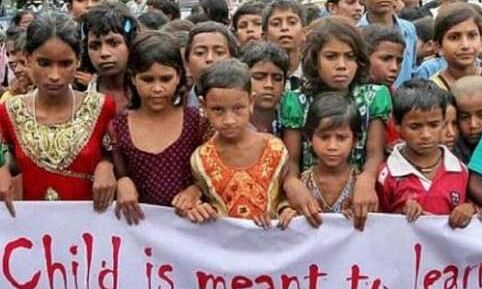Find out what pushes families to choose begging as profession: NCPCR to states/UTs

New Delhi: Noting that there are some families who have been begging in an organised manner, the National Commission for the Protection of Child Rights has now recommended state/UT governments to conduct a study exploring the reasons behind families having to rely on begging as a profession.
According to the child rights body, it has been observed that there are families who have been begging on the streets traditionally. To make begging a part of their profession, they migrate to the cities as seasonal migrants. These families generally beg on buses or trains and public places. "There should be a study to understand their background, reasons and various aspects as to how they have made begging a profession," the commission recommended.
The apex child rights body has come up with their latest standard operating procedure (SOP) for the care and protection of children living
in street situations. "Children living with family and in a community environment are somehow safer than the children in street situations (CiSS) or children without parental care," they said.
According to the NCPCR, big metropolitan cities have a higher presence of CiSS who have migrated from other States, whereas in the smaller cities, they are mostly from the same State. Search for employment, slum displacement and household poverty are important triggers for children who migrate to the city.
The child rights body has categorised CiSS in different categories which will help in the rehabilitation of these vulnerable kids. The children without support living on the streets all alone may be provided long-term institutional care till the completion of 18 years and after that, financial support (as per section 46 of the JJ Act, 2015) may be provided till the age of 21 years to facilitate the child's reintegration into the mainstream of society.
If it is found that a child returns to their family in a nearby slum, they should be enrolled for education and nutrition either at a school or Anganwadi Centre depending on his age. The child
rights body also recommended that in case no open shelter is available, the District Magistrate should facilitate any government building or school to temporarily function as a shelter till one is available.
Priyank Kanoongo, Chairperson of NCPCR said that children should not live on streets, the SOP will help in their rehabilitation.



